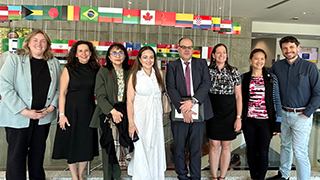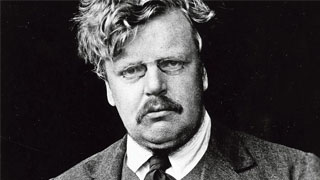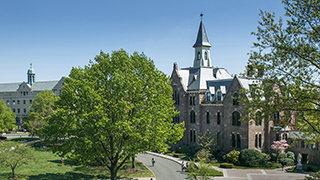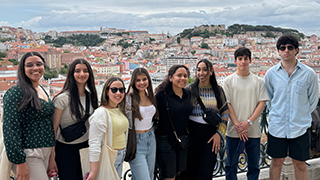Chemistry Seminar on Enzyme Catalysis - Seton Hall University
Wednesday, November 14, 2018

The seminar will be held on Tuesday November 20, 2018 from 5:45 – 7:00 p.m. in the Helen Lerner Amphitheater, Science and Technology Center, Seton Hall University. Refreshments are available at 5:30 p.m.
Todd Hyster is a native of Minnesota. He was an undergraduate at the University of Minnesota before moving to Colorado State University for his Ph.D. He worked in the labs of Tomislav Rovis developing methods for synthesizing nitrogen-containing heterocycles using Rh(III)-catalyzed C–H activation. During his graduate studies, Todd spent time in the lab of Thomas Ward at the University of Basel developing an artificial metalloenzyme for C–H activation reactions. After completing his Ph.D. in 2013, he joined the labs of 2018 Nobel Laureate Frances Arnold as an NIH postdoctoral fellow. In the Arnold lab, he developed P450s catalyzed nitrene transfer reactions. In 2015, Todd joined the Chemistry Department at Princeton University as an assistant professor where his group develops new methods to expand the repertoire of reaction available to enzymes.
Preparing molecules of interest via new catalyst design is a defining feature of modern organic chemistry. Despite tremendous advances, classical approaches such as organocatalysis and transition metal catalysis have difficulty addressing synthetic challenges. Dr. Hyster's research group is interested in exploiting protein-based catalysts to address these challenges. These solutions range from developing new protein/catalysts hybrid complexes to engineering existing enzyme complexes to catalyze new, synthetically interesting reactions.
Enzymes are optimal catalysts for chemical synthesis because they can be evolved to provide unparalleled levels of selectivity. They are, however, limited to reactivity patterns found in nature. In this talk, Dr. Hyster will share our groups approach to address this limitation using radicals and light.
The Department of Chemistry and Biochemistry offers B.S., M.S. and Ph.D. degrees with specializations in all areas of chemistry. Our unique research environment, including traditional full-time students and part-time students is designed to foster collaborations with industry and colleagues in other disciplines. The Rose Mercadante Seminar Series is named for Rose Mercadante, the departmental secretary for over 40 years, in honor of our alumni, her "boys and girls".





